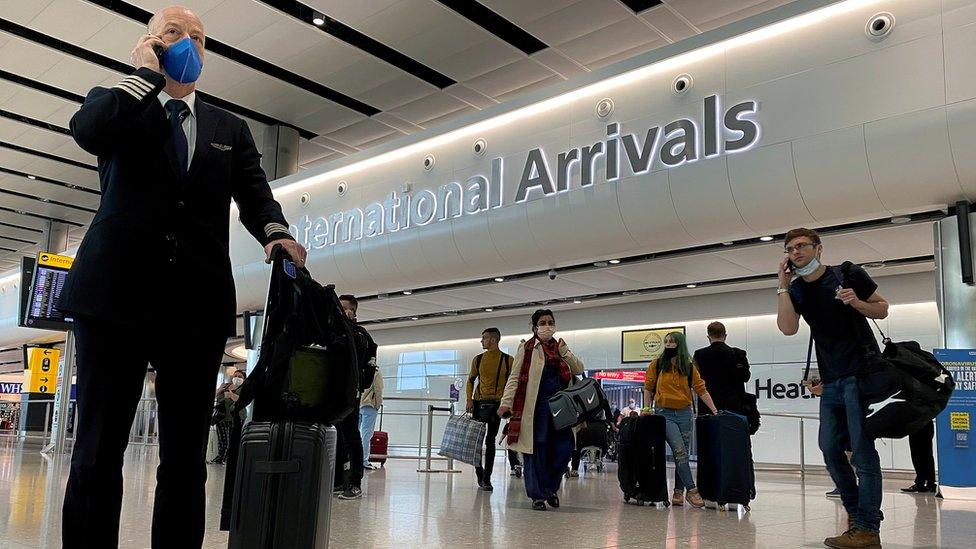Coronavirus: 'Crystal clear' drunk people will not socially distance
- Published
Large crowds of people visited London's Soho district to celebrate pubs reopening
It is "crystal clear" that drunk people are unable to socially distance, the chair of the Police Federation said as pubs reopened on Saturday.
Ministers had urged caution ahead of hospitality venues reopening in England after three months of lockdown.
John Apter dealt with "naked men, happy drunks, angry drunks, fights and more angry drunks" on shift in Southampton.
But police thanked the majority of people for acting responsibly as they enjoyed the night out.
Streets were packed in London's Soho district, with images showing revellers outside pubs into the early hours of Sunday.
The Metropolitan Police said "a small number" of premises closed early following advice from officers due to crowding, but the force added that there were "no significant issues" in the capital.
Devon and Cornwall Police received more than 1,000 reports, most of which were "drink-related".
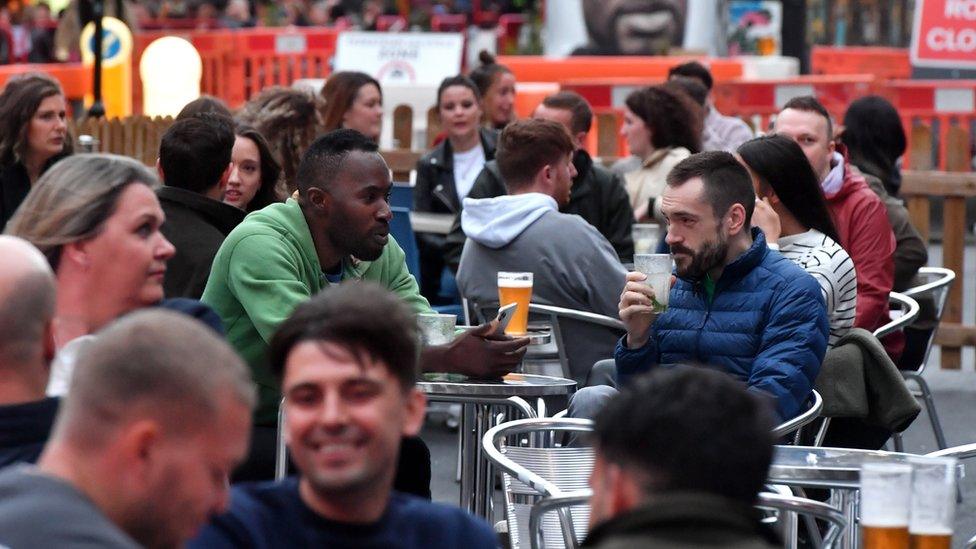
Bars on Hilton Street in Manchester's Northern Quarter set out tables for customers
In north Nottinghamshire, four people were arrested and several pubs decided to close after alcohol related anti-social behaviour.
While people were out in droves at thousands of venues, fears emergency services could be as busy as New Year's Eve appear not to have been realised.
But Mr Apter, from the Police Federation, an association for police staff in England and Wales, said: "What was crystal clear is that drunk people can't/won't socially distance.
"It was a busy night but the shift managed to cope. I know other areas have had issues with officers being assaulted."
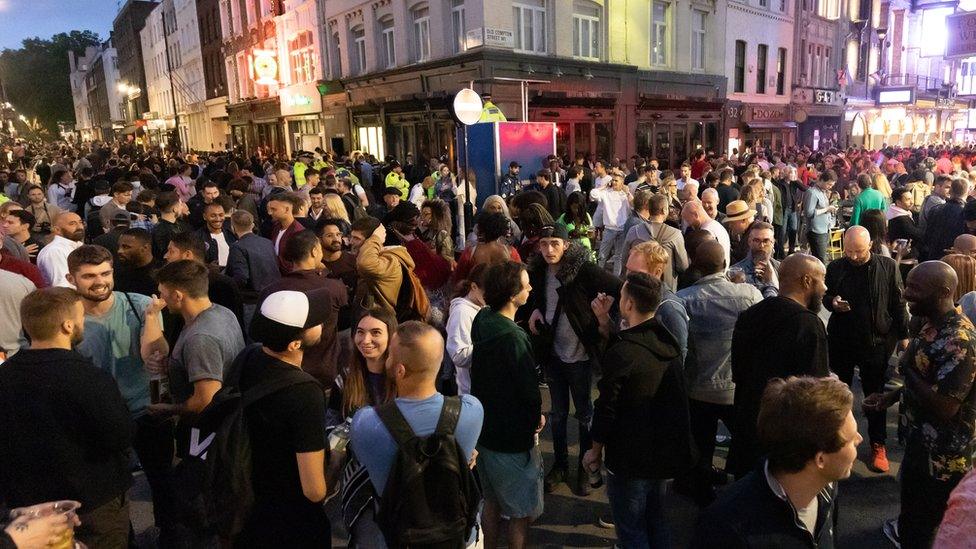
Some streets in Soho, London, were closed to traffic
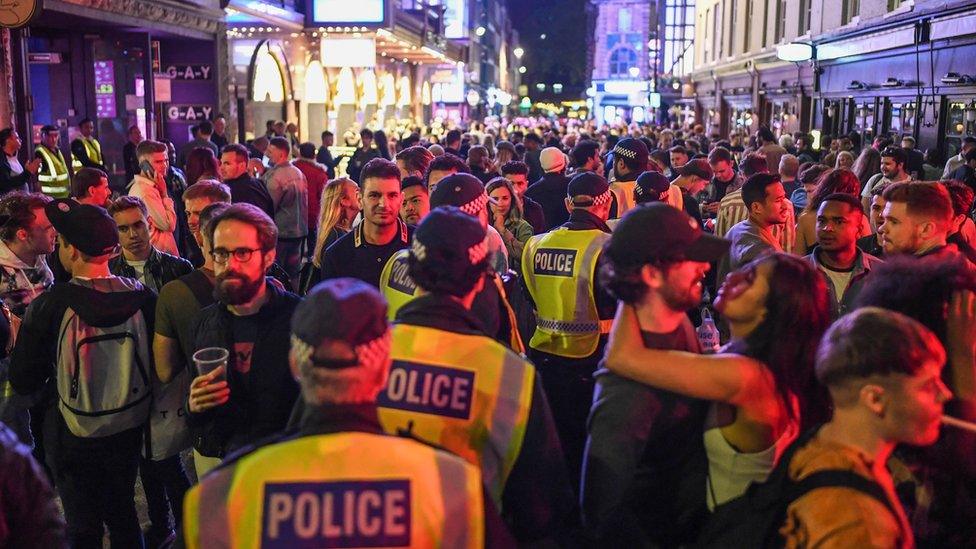
Police officers were seen walking through heavy crowds in Soho
Addressing concerns raised by Mr Apter, Health Secretary Matt Hancock said people had largely acted responsibly, saying the "vast majority of people are, I think, doing the right thing".
He told Sky News' Sophy Ridge: "Overall I'm pleased with what happened yesterday, it was really good to see people out and about and very largely social distancing."
Sir Simon Stevens, NHS England chief executive, told the BBC's Andrew Marr Show: "Pleasingly, we did not see last night the kind of scenes that people feared might be. It was the foolish few, but the sensible majority."
Rob Moore, paramedic at the West Midlands Ambulance Service, told BBC Breakfast it had been a "really average" night shift in his area.
"We were really prepared for a sudden upsurge in calls related to people being out drinking but it hasn't happened thankfully," he said. "Hopefully it's a sign people have heeded the advice and had a sensible night."
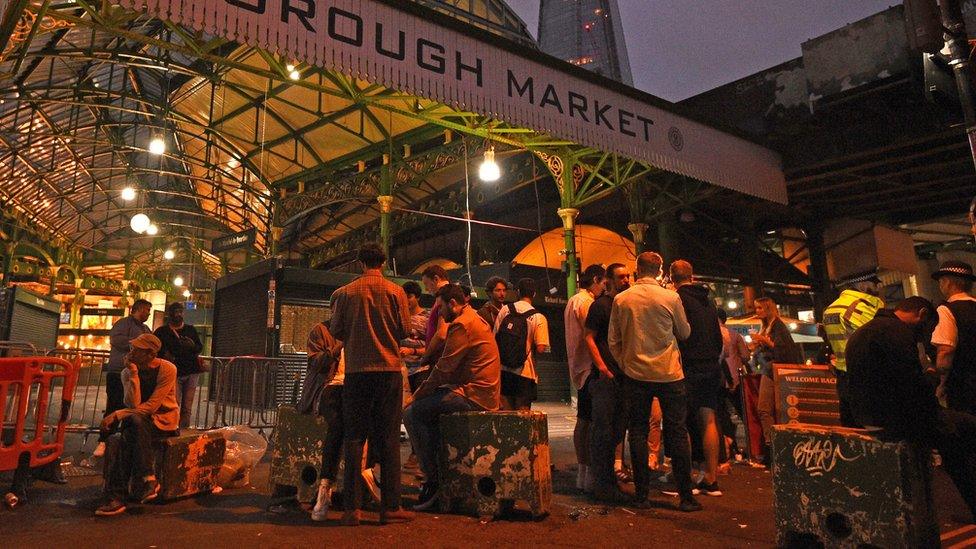
Groups gather in Borough Market, London
People in England are still urged to stay 2m apart, but the new "one metre plus" guidance means they can get closer if they use "mitigation" measures, such as face coverings and not sitting face-to-face.
Boris Johnson and government experts had urged people to stick to the rules to avoid creating a second wave of coronavirus, with chief medical officer for England Chris Whitty saying easing lockdown is not "risk-free".
The latest government figures, released on Sunday, showed a further 22 people had died in the UK after testing positive for coronavirus, bringing the death toll to 44,220.
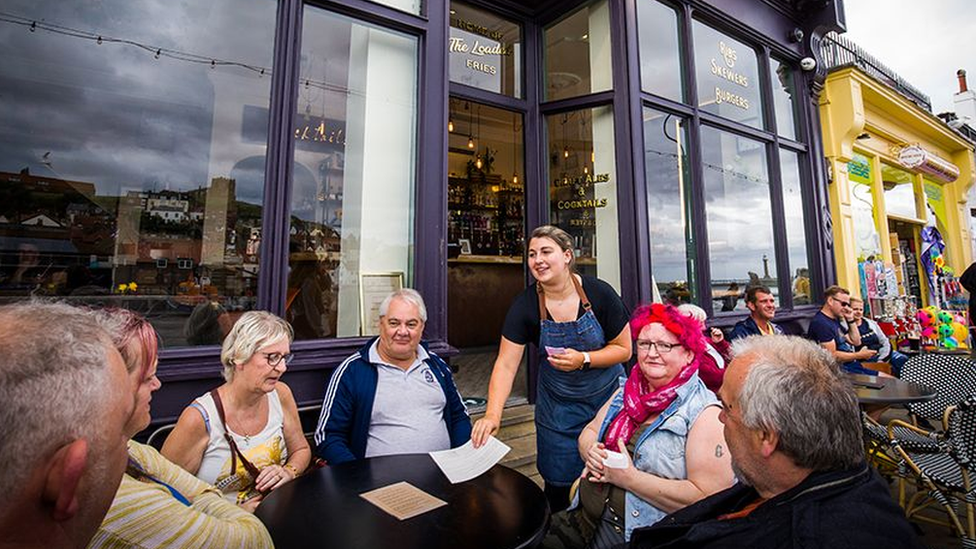
A group sits outside a bar and restaurant in Whitby, after travelling from nearby Darlington
Dr Chris Smith, a virologist from the University of Cambridge, said that the majority of people are "responsible", but urged caution, citing cities such as Leicester and Melbourne, which have imposed localised lockdowns.
"I would remind people, have a look at what's going on around the world," Dr Smith told BBC Breakfast.
"We could easily lurch back in the wrong direction if we don't remain vigilant because this thing hasn't gone away. We've still got a lot of circulation of the virus in the country, it's just a lot lower than when we started."
In Leicester, streets were largely deserted as pubs and other venues remain closed after the city became the first to be subject to a local lockdown on Monday, following a spike in Covid-19 cases.
Restrictions on the hospitality sector remain in place in Scotland and Wales, while pubs have been able to open in Northern Ireland since Friday.

SOCIAL DISTANCING: What are the rules now?
EUROPE LOCKDOWN: How is it being lifted?
FACE MASKS: When should you wear one?
TWO METRES: Is less than 2m safe?

Barber queues and wedding bells
There were further lockdown restrictions relaxed in England on Saturday, including hairdressers and barber shops reopening.
Long queues were seen outside barbers and there were midnight hairdressing appointments as people tamed their locks following months of closures.
Other places now allowed to reopen in England include:
Outdoor gyms, children's playgrounds and other outdoor spaces
Libraries, community centres, bingo halls, cinemas, museums and galleries
Funfairs, theme parks, amusement arcades, outdoor skating rinks, social clubs and model villages
Places of worship can open for prayers and services and weddings are allowed to take place
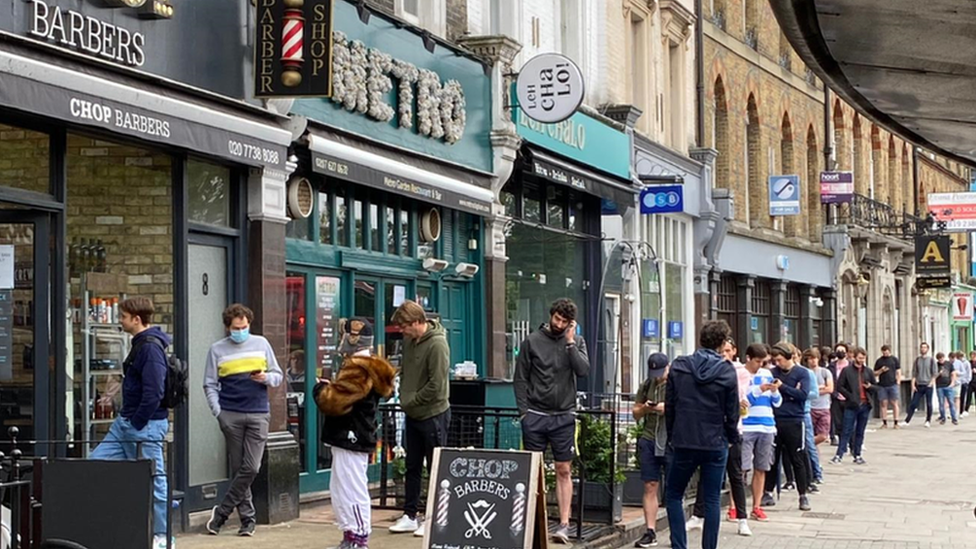
There were long queues outside a barbers in Clapham, south London
People are also allowed to stay the night away from home for the first time since lockdown started, with campsites and holiday accommodation also reopening.
Police in Dorset, Devon and Cornwall reported gridlock on the roads on Saturday - including a high volume of caravan owners heading to the coast.
Two households can also meet indoors or outside, including for overnight stays - although they have to maintain social distancing.
Meanwhile, new quarantine exemptions will allow major sporting events, as well as TV and film productions, to go ahead this summer.
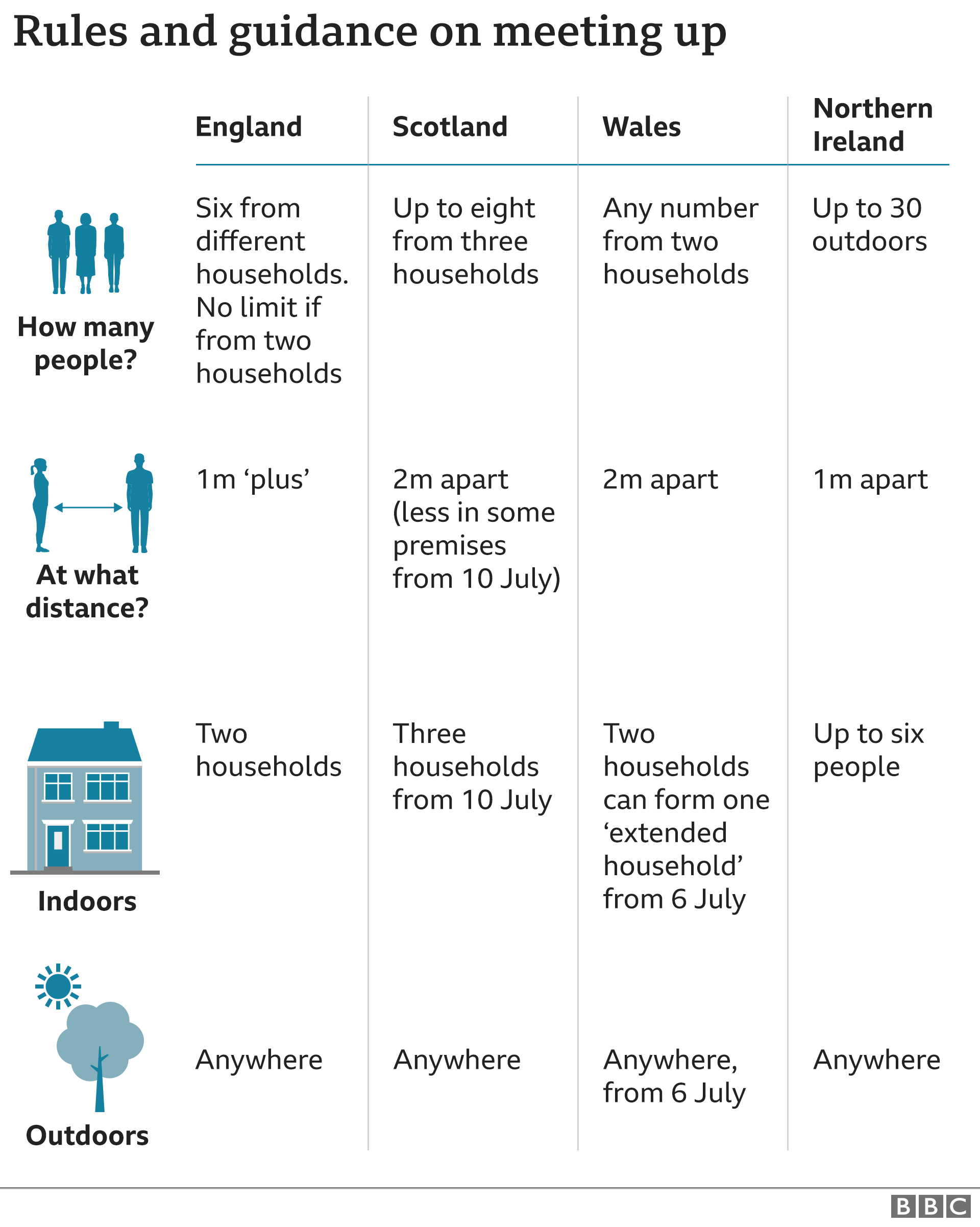


ILLEGAL LOCKDOWN RAVES: Annie Mac on Coronavirus Newscast
FOOD REVOLUTION: Is the way we produce and buy food set to change for good?


How are you planning to deal with lockdown easing? Are you going to meet loved ones for the first time since it began? Are you working? Are you happy or concerned about lifted restrictions? Please email haveyoursay@bbc.co.uk, external.
Please include a contact number if you are willing to speak to a BBC journalist. You can also contact us in the following ways:
WhatsApp: +44 7756 165803
Tweet: @BBC_HaveYourSay, external
Send pictures/video to yourpics@bbc.co.uk, external
Please read our terms & conditions and privacy policy
- Published4 July 2020
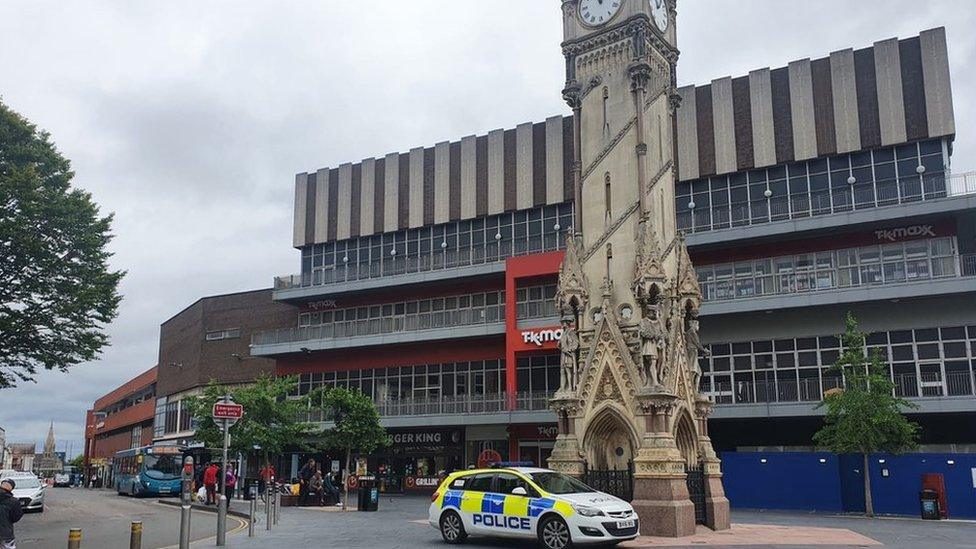
- Published3 July 2020
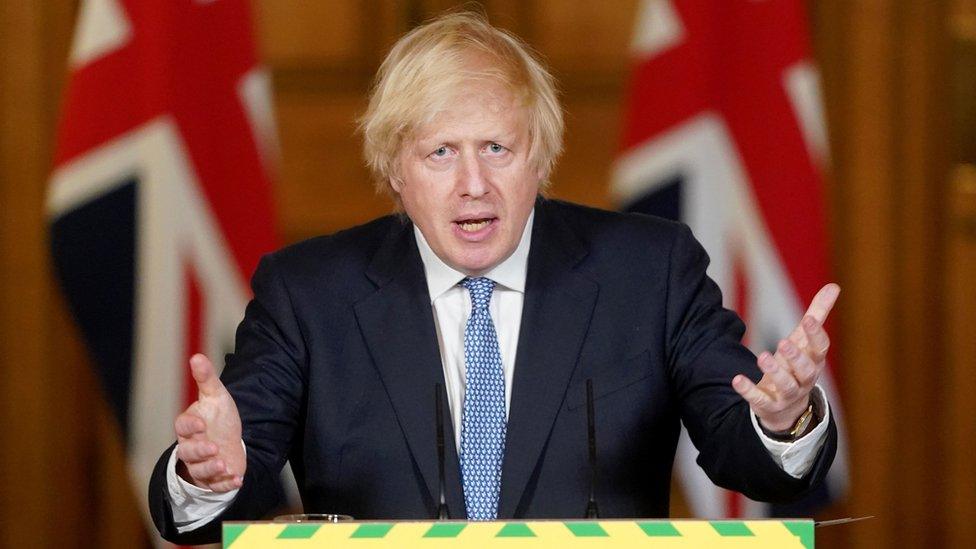
- Published14 July 2021
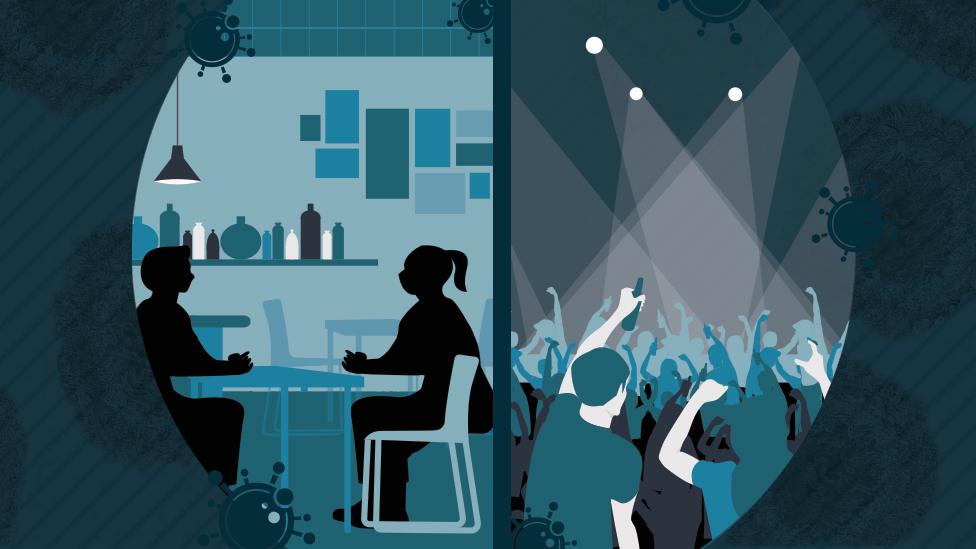
- Published3 July 2020
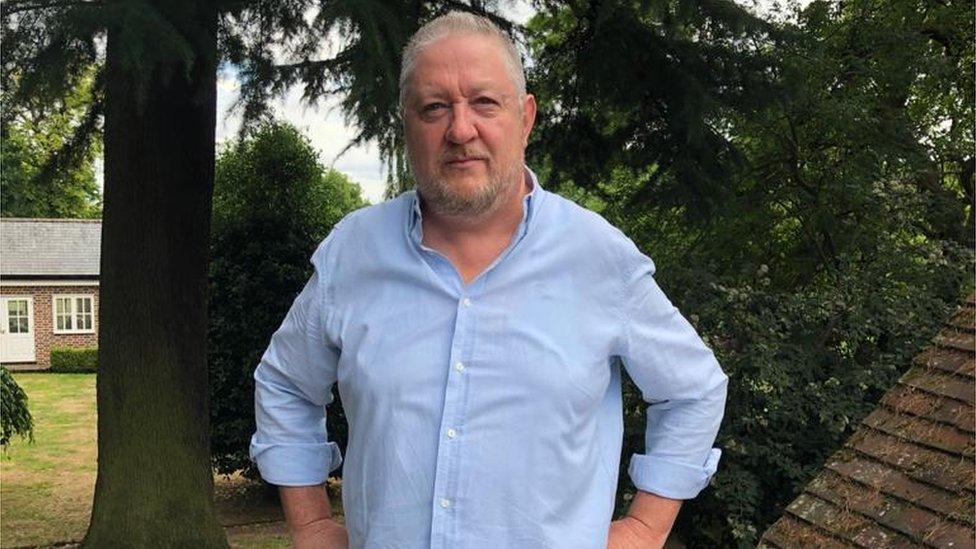
- Published1 July 2022

- Published4 July 2020
